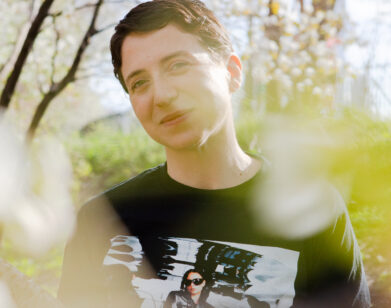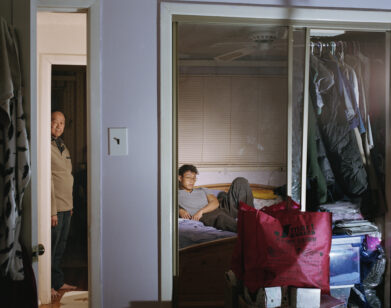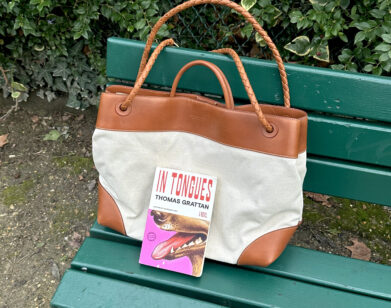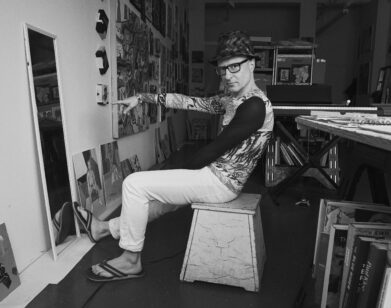literature
Thomas Grattan on His Dazzling Debut Novel, The Recent East
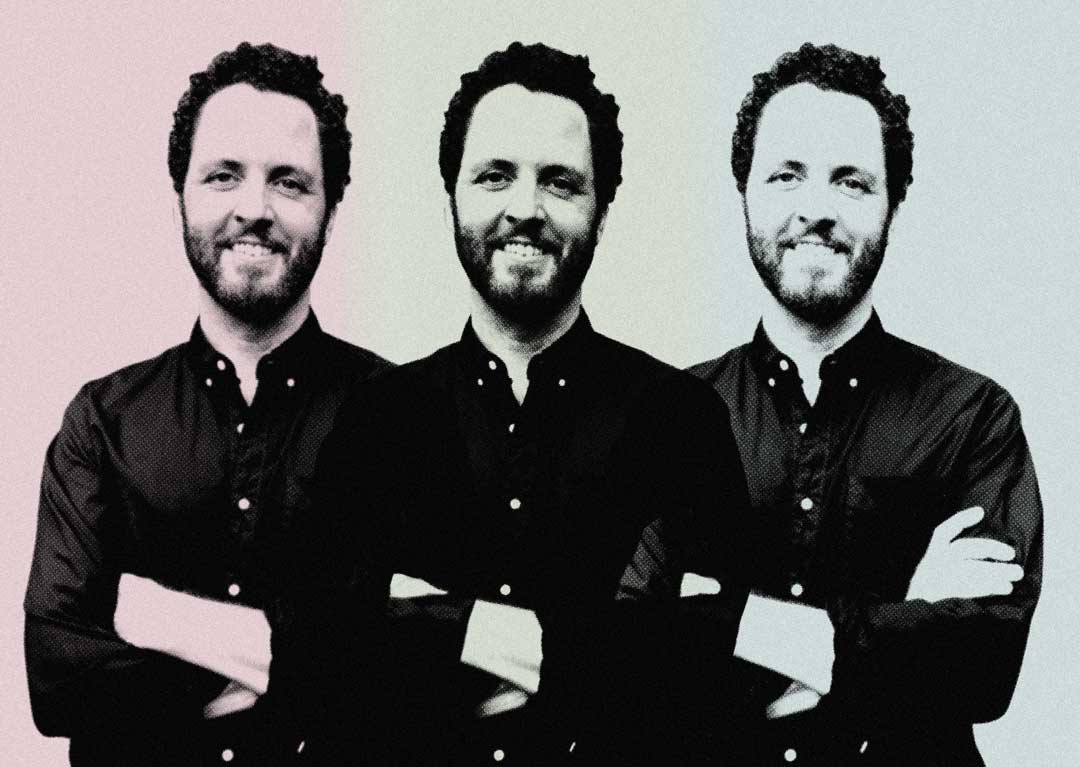
The plot is ambitious: an East German family defects West in the late 1960s, moves to the United States, only for the next generation to return, in 1990, after the fall of Communism to reinhabit the crumbling neglected house in the fictional city of Kritzhagen. Thomas Grattan’s debut novel, The Recent East, spans half a century, and hones in on a mother, Beate, and her two post-adolescent children Michael and Adela, as they navigate a semi-deserted, half-feral slice of post-Communist Germany, battling their own budding sexualities and complicated family dynamic. This cross-cultural saga sounds excited enough to merit the read, but a narrative description alone fails to convey the dazzling, deeply loving, obscenely clever prose at the heart of Grattan’s novel. The Recent East is filled with many little landmines of sentences buried in each paragraph that nearly makes you stop and gasp. It’s all the small details tossing around this continent-tossed family that makes this novel such a joy. Here’s one: “he walked down the hall, his hair and turtleneck the same color.” Here’s another, perfectly capturing a child’s confusion at finding his father sleeping on the couch and not in his parents’ bed: “Peter walked into the room, looking from one parent to the other as if his father weren’t sleeping but injured.” Grattan, who also teaches middle school, spends his current COVID days between his apartment in Brooklyn and a house in upstate New York. It was in a room of this house that Thomas Grattan appeared by Zoom to talk about his city in Germany, real and imaged.
———
CHRISTOPHER BOLLEN: Am I looking at you in your writing room?
THOMAS GRATTAN: I’m in a weird little closet in my house upstate that I’ve made my writing nook. I kind of love it.
BOLLEN: Is this where you wrote The Recent East?
GRATTAN: No, I didn’t have this place then. I wrote a lot of it in a very small apartment in Brooklyn. It was much less glamorous. It was in a tiny corner of the living room where I had a desk. I think I started writing it about eight years ago, and I did the last edits on it more than a year ago now, before COVID.
BOLLEN: It’s so strange, isn’t it, when such an everyday fixture of your life for several years leaves your hands and you can’t keep making the tiniest word changes to a sentence on page 246?
GRATTAN: I still want to! When I was looking through it deciding what to read, I thought, I’m just going to cut this one line. It’s like, no, you can’t continue to edit anymore! I have to just let it go. That’s good.
BOLLEN: What was the seed of the book for you? The connection to Germany felt so vivid I wondered if it was part of your own history.
GRATTAN: There are certain aspects that are loosely based on autobiography. My mom was born in East Germany and did defect when she was a kid. So that part is true. By the time the Wall fell, my grandfather was no longer around, and my grandmother was very old and I think the house was falling apart, so she got a tiny sum of money for it. But I always thought that idea was fascinating of going back to something that you imagined was gone forever. It feels like a resurrection. I spent a lot of time as a kid in Germany because my mom is German and didn’t move to the States until she married my dad. So I have a lot of connections to it. So I knew I wanted to write something about Germany and when reading about it I learned that a lot of people did return to the East after they left and wanted their property back.
BOLLEN: The defection scene at the beginning of your book is very dramatic. Was your mother’s defection based on that train journey with the cover story for the police?
GRATTAN: They used fake passports. But they crossed in a truck with their stuff. And apparently, the border was really porous, so my grandfather was able to sneak back and forth often because he was a merchant—merchant sound so 18th century, but he sold silverware and things. And he was originally from the West before that distinction existed. My mom was younger and doesn’t really remember much about it, but she had three brothers and one is still alive. He was 16 at the time, and they didn’t have enough money for all the passports. So he and my other uncle actually snuck through the woods without passports. So that was sort of dramatic. My family told the story a lot because, of course, it really changed the trajectory of their lives. My grandmother never saw her mother again, because her mother stayed on. For some reason, my mom was able as a teenager to go over to East Germany and visit her but her mother, because she was an adult, never could.
BOLLEN: When you went back to Germany as a kid, where would you go?
GRATTAN: The city my mom moved to in the West is called Aachen, which is really far West, right where Belgium and Holland and Germany meet., I didn’t ever go to East Germany until after the Wall had fallen. My cousins and I would go to Berlin when we were older. Then I read a lot about certain places on the Baltic coast where there was shipping and the Soviet navy, and as soon as the Wall fell these towns emptied out. That was another piece of the book that really interested me, a town where everyone was suddenly leaving.
BOLLEN: Did your family keep track of the house they lived in in the East?
GRATTAN: Not really. My mom was only four when she left. She remembers the street name. But I’ve seen pictures of it. One of her first memories that is really wild, which I couldn’t fit into the book, is that Russian soldiers occupied the top floor after the war, and apparently, the house was inundated with bed bugs. So my mom remembers looking out the window as this burning mattress flew down from the top floor because that’s how they got rid of bed bugs. It’s such a great detail!
BOLLEN: Especially as far as first memories go! The novel is so sprawling in terms of time, and its organizational structure almost feels more spatial than chronological, as if it’s branching out in all different directions at once. How did you organize it while writing it?
GRATTAN: I love writers who really play with time. Some people have asked me, “Why didn’t you just focus on the first six months of the family moving back?” I certainly could have. There was enough material. But there was something about the before and after I was really fascinated by. The story of Beate and the children, I wrote pretty chronologically. But then, after the first draft, I threw in these chapters that I called “interludes” at the time. And then I figured out how to weave them in. But I always knew I wanted a big scope and to follow these characters into adulthood.
BOLLEN: What are the books you love that play with time?
GRATTAN: One that I love, which is very different than mine, is Atonement by Ian McEwan. It’s really big, but it’s also a really tight book in the way that he manages to move around from time and character. I think it begins when Briony is 12 and ends when she’s 80. Also, the house plays a big role, and at the end of that book the house is actually like a hotel she’s staying in, right? There’s an amazing German writer named Jenny Erpenbeck who wrote a book called Visitation, which I actually didn’t read until I was pretty far into later drafts, but it’s a story of a house outside of Berlin starting in the early 1900s and going to 1990. The house is really the main character and these people come and go inside of it. And also weirdly, I saw this Caryl Churchill play in the ’90s called Mad Forest, set in Romania about pre- and post-Communism, and how the setting is transformed in both beneficial and vapid, capitalistic ways. I couldn’t stop thinking about it.
BOLLEN: I only just learned about Caryl Churchill a few months ago! But apparently, I’m very late to the game and everyone else is a huge fan. I just read Cloud 9.
GRATTAN: She’s great. I did theater badly in college.
BOLLEN: Is there any other way to do it in college?
GRATTAN: Rarely. A bunch of my friends did a production of Cloud 9 and I was obsessed with it.
BOLLEN: You also teach middle school. Your depiction of children in your novel is so loving and boisterous. I’m not around children and don’t feel confident about charting their inner lives, but you have a real understanding for them as characters. Do you think being a teacher helps?
GRATTAN: I’ve taught it for 14 years now. There’s something I find really endearing about that age because they’re starting to be interesting and funny and smart, but there’s something still childlike and playful about them. I’ve taught high-school and college and everyone’s already so jaded. Whereas with middle school kids, if we’re doing Greek mythology, I can say, “Tomorrow we’re dressing up like Greek gods” and they’re like, “Awesome!” I love that.
BOLLEN: I can name to this day every single one of the teachers I had in middle school. I can’t do that with all my high school and college teachers.
GRATTAN: Me too. There’s something really fascinating and formative about that age. You know, it’s funny now that the book is written and out, I’ve grown very wary about some of the behaviors that the 14-year-olds do in my book. When I wrote it, I was by myself, thinking this will never see the light of day. And I’m just like, okay, don’t read this please. Thank you.
BOLLEN: I assume you’ll keep writing novels. Will you keep teaching?
GRATTAN: For the time being, yeah. Maybe it’s possible with my school that I might do something next year that’s a little more part-time. The nice thing about teaching is that you really have the summer, but during the school year it’s pretty intense. When I was teaching and working on The Recent East, I would get up really early before work at 5:15 to write. And after I finished that draft, my partner was like, “Please don’t ever do that again. That sucked.” Because I woke him up.
BOLLEN: There really should be a support group for the partners of writers. For what they have to go through. It’s horrible.
GRATTAN: It’s true. “How dare you not understand that I need six hours to myself right now!” But that’s normal.

